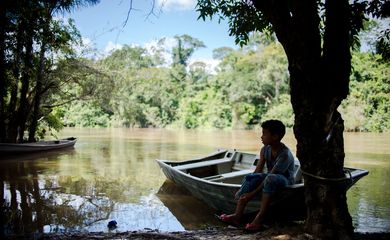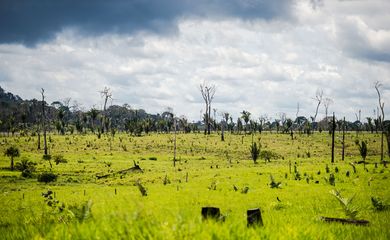Amazon Summit: Agreement imperative to avert point of no return

The agreement to be signed between the Amazon countries at the end of the upcoming Amazon Summit, which takes place on August 8 and 9 in Belém, state of Pará, Brazil, shall include measures to avoid the point of no return of the world's largest tropical forest.

Brazil’s Environment and Climate Change Minister Marina Silva, alongside her counterparts from Colombia, Susana Muhamad, and Peru, Nancy Chauca Vásquez, emphasized this pivotal objective during the Amazon Dialogues on Sunday (Aug. 6), an event that precedes the summit.
The “point of no return” is a term used by experts to refer to the point at which the forest loses its ability to self-regenerate, due to deforestation, degradation, and global warming, then tending to the process of desertification.
Silva underscored that the final summit declaration would be presented by the presidents of the participating countries, but shared that common ground had already been established through prior discussions: "All presidents acknowledge that we cannot allow the Amazon to reach the point of no return. To avert this dire outcome, our efforts must transcend individual endeavors, demanding collective action and regional cooperation. Together, we can achieve superior results in safeguarding our forests, preserving biodiversity, respecting indigenous communities, and fostering a partnership that will lead us to a renewed era of prosperity. This is our shared understanding."
Co-responsibilities
Susana Muhamad highlighted the significance of strengthening the Amazon Cooperation Treaty Organization (ACTO), comprising Bolivia, Brazil, Colombia, Ecuador, Guyana, Peru, Suriname, and Venezuela, along with collaborative work among governments and traditional communities.
She emphasized the urgent message that continued climate crisis poses a grave risk to the Amazon: "Addressing this challenge requires a unified response at local, national, multilateral, and global levels. I am confident that the presidents will also be very clear about this," added the Colombian minister.
Chauca Vásquez explained her country's commitment to enhancing environmental legislation to impose stricter penalties for ecological offenses. However, she acknowledged that progress hinges not solely on the executive branch but also on the cooperation of Peruvian parliamentarians: "In Peru, our concerted efforts span multiple sectors, transcending environmental concerns to encompass education, healthcare, water and sanitation. Equitable access to clean energy is paramount. Additionally, we aim to create sustainable opportunities for generating bio-business, promoting productive value chains, and fostering eco-friendly services," stated Vásquez.
In closing, the Brazilian minister highlighted a striking fact: 75 percent of South America's GDP relies on the Amazon's rainfall. "Without the Amazon, agriculture, industry, and life itself in South, Southeast, and Central-West Brazil would be jeopardized, and the region could become a barren desert akin to the Atacama or Sahara. This isn't merely a matter of population weight; it's an imperative to uphold the principles of environmental justice and acknowledge the pivotal role of ecosystem services generated by this region," asserted Marina Silva.



